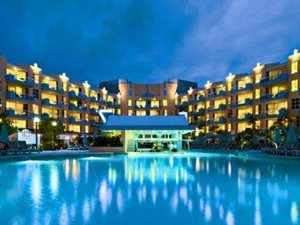
Why trainees exposed to diverse roles will make better leaders
In the ever-changing dynamic of today’s connected world, things are increasingly complicated, and this is no less true for hospitality.
If you think hospitality is a career for you, identifying your personal preference for face serving, front-of-house guest interactive service roles, or the anonymity of back-of-house operations and more prescriptive data roles, is easier with having on-the-job experience and is perhaps one of the very first important decisions to make.
Providing your staff the opportunity to explore these options will help them stream into careers that better fit their preferred choices and will increase the likelihood of them enjoying a long and successful career in hospitality.
Hospitality is a 24/7 business. Weekend, public holiday and shift work affects your lifestyle choices, with administrative and HR roles offering more typical nine-to-five shifts. Starting a job in hospitality is often a way to pay for study and is not a first career choice. But exposure provided by these first jobs can promote future career options.
They also provide critical first-hand insight on how management decisions directly impact staff ability to do their job. For example, how rostering impacts service outputs, delivery timelines, labour costs, and ultimately the guest experience.
You cannot say to a guest: ‘Sorry, we are not ready’. There is a fixed time expectation. These learnings are invaluable.
As an employee, learnings acquired from each role add depth to your resume and improve future decision-making capability and leadership skills.
Classroom learning about management does not provide the insights gained from this early hands-on experience. Once upon a time, completing a degree in hotel management gave entry to any role in hospitality, from hotels, resorts, events, restaurants, tourism roles and more. But as the industry has diversified, early selection of specialty course content is now required – whether that is in tourism, sales and marketing, hotel management, event or resort management, aged care and more.
Specialty course content provides intimate knowledge of specific sectors of the industry – which is good. But in my view, this should be a decision made after first having had a broad introduction to all facets of hospitality and operations.
Recruiters seek square pegs to fit square holes, round pegs to fit round holes. It’s easier.
Online search engines discard anything that fails to “fit” the recruitment profile, before any chance of a human glance. It is easier. But diverse hands-on experience gives a more robust understanding of key management concepts and how these underscore the full spectrum of hospitality roles. Diverse experience provides depth of understanding and enables wider perspective on opportunities.
From an organisational perspective, there is much value to be gained from enabling staff to cross-train and multi-skill, both within and across departments. Whether a small enterprise or large organisation, the employer must commit to the extra training involved to ensure the experience is a happy and safe one for the company, the staff, and for the guests.
When done well, enabling a diverse work experience:
- Is empowering, individually and collectively for the team.
‘Walking in the other persons shoes’ enables empathy and insight and helps make better business decisions.
- Adds depth to your team.
Roster robustness helps meet everyday changes to business demands and dynamics. Each player understands each role and can step in confidently if the situation demands.
- Exposes individuals to roles that may not have been on their radar.
They may enjoy, or indeed dislike an experience which will help direct their future career choices.
- Improves staff engagement and retention.
Staff feel more valued when their personal development and growth is a priority, and are more likely to stay.
Increasingly, cluster general managers are becoming the norm, the role of GM diminished to one of maintaining operations, delivering to budget and enforcing brand expectations.
Today’s managers are likely to have industry qualification, but do they offer broad hands-on experience gained from a variety of roles at the coalface?
Data analysis, customer profiling, revenue management and administration are building blocks and the foundation of preparing a robust budget. But the use of data needs to be put into specific context!
Industry standards to service a hotel room may not factor in the number of beds in the room, the provision of a kitchen, the materials to maintain, the layout or size. A wall of louvre windows will take a lot longer to clean than a simple glazed window. The location of supplies and equipment must also be considered.
When rolling out brand strategy for operations, how do you embrace the unique nuances of the particular culture or the hotel location? The opportunity for inclusion should be considered before plans are developed, to ensure it is can be cost-effectively integrated. Equally, a revenue optimisation strategy for a city centric hotel is unlikely to work for a remote destination hotel.
Understanding how the pieces of the puzzle fit enables sound management strategies.
Exposure to a wide range of hospitality operations provides greater insight for future management decisions and helps identify new possibilities. Understanding the end-to-end delivery process is crucial when developing new ventures and how this impacts service outcomes and possibilities can affect profitability.
Karen Taylor is the Director at Taylor Dade Consulting. Check out more of her columns in future issues of Resort News and AMG.





